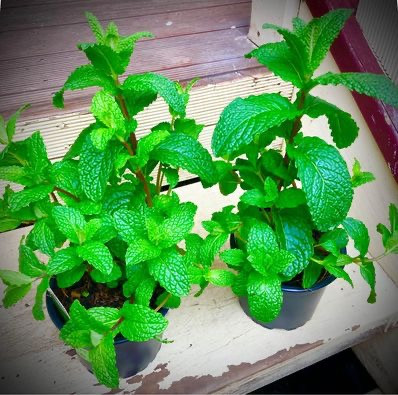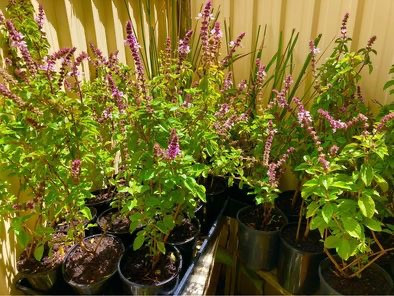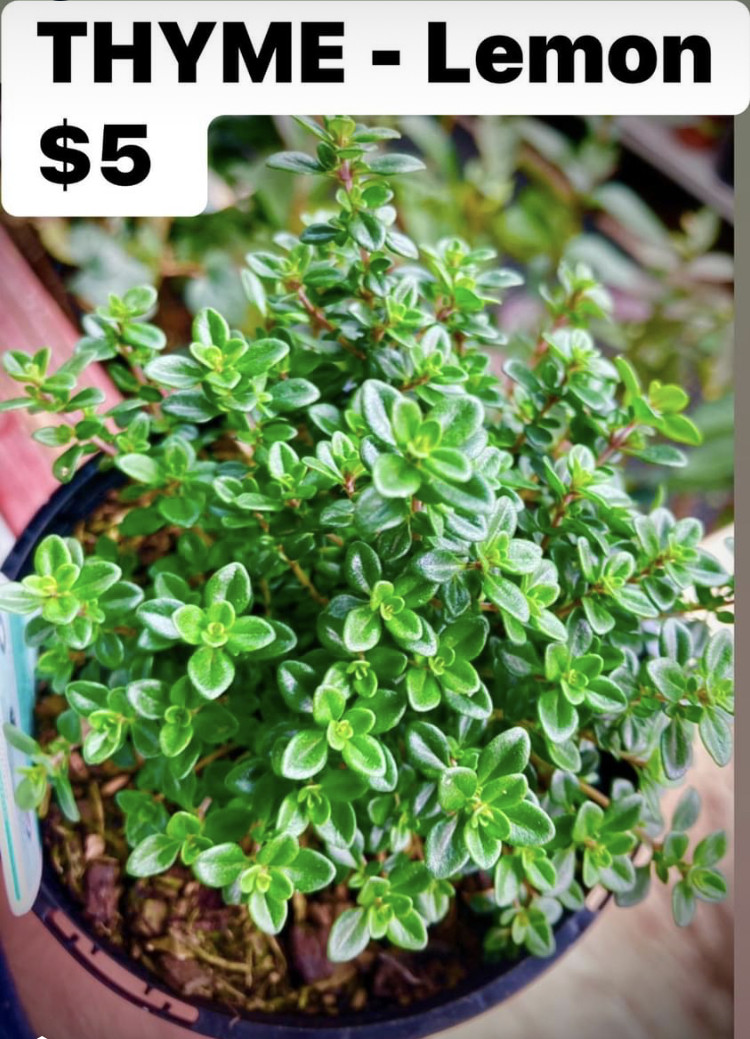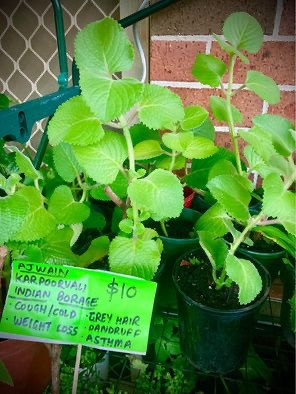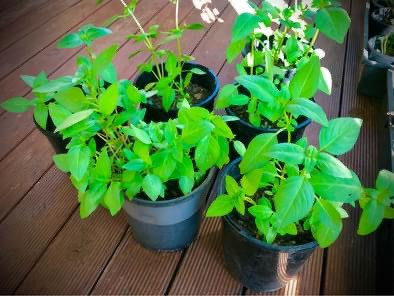
.png)
.png)
Thai basil
Category : Herbs
Thai basil is a popular herb widely used throughout Southeast Asia, renowned for its unique flavor profile. Described as anise- and licorice-like with a slight spiciness, Thai basil retains its flavor better than sweet basil under high or extended cooking temperatures. It features small, narrow leaves, purple stems, and striking pink-purple flowers, adding both taste and visual appeal to your garden.
Culinary Uses
Thai basil is an essential ingredient in many Southeast Asian dishes, providing a distinct and aromatic flavor:
- Curries: Enhances the complexity of Thai and Vietnamese curries.
- Stir-Fries: Adds a burst of flavor to stir-fried vegetables and meats.
- Soups: Essential in traditional soups like Vietnamese pho.
- Salads: Fresh leaves are used to garnish salads, providing a refreshing taste.
Health Benefits
Beyond its culinary uses, Thai basil offers several health benefits:
- Antioxidant Properties: Rich in antioxidants that help protect against cellular damage.
- Anti-inflammatory: Contains compounds that reduce inflammation.
- Digestive Aid: Known to support digestion and alleviate stomach issues.
Growing Thai Basil
Thai basil is relatively easy to grow and can thrive in your garden or containers with the right care. Here’s how to cultivate Thai basil successfully:
1. Soil and Sunlight:
- Prefers well-drained, slightly acidic to neutral soil (pH 6.0-7.5).
- Requires full sun to partial shade, with at least 6 hours of sunlight daily.
2. Planting:
- Start seeds indoors 6-8 weeks before the last frost date or sow directly outdoors after the risk of frost has passed.
- Space plants about 30 cm apart to allow for proper growth and air circulation.
3. Watering:
- Water regularly to keep the soil consistently moist but not waterlogged.
- Avoid overhead watering to prevent fungal diseases.
4. Pruning and Harvesting:
- Pinch off the top leaves regularly to encourage bushy growth and prevent flowering.
- Harvest leaves as needed, preferably in the morning when the oils are most concentrated.
5. Pests and Diseases:
- Watch for common pests such as aphids and whiteflies. Use organic insecticides or natural predators to control them.
- Ensure good air circulation and avoid overwatering to prevent fungal issues.
Conclusion
Thai basil is a flavorful and aromatic herb that enhances many Southeast Asian dishes and provides several health benefits. By following these guidelines, you can grow Thai basil successfully in your garden and enjoy its unique taste and vibrant appearance. Visit Sai Nursery for quality Thai basil plants and expert gardening advice.
Price : $10
Out of Stock

.png)
.png)


